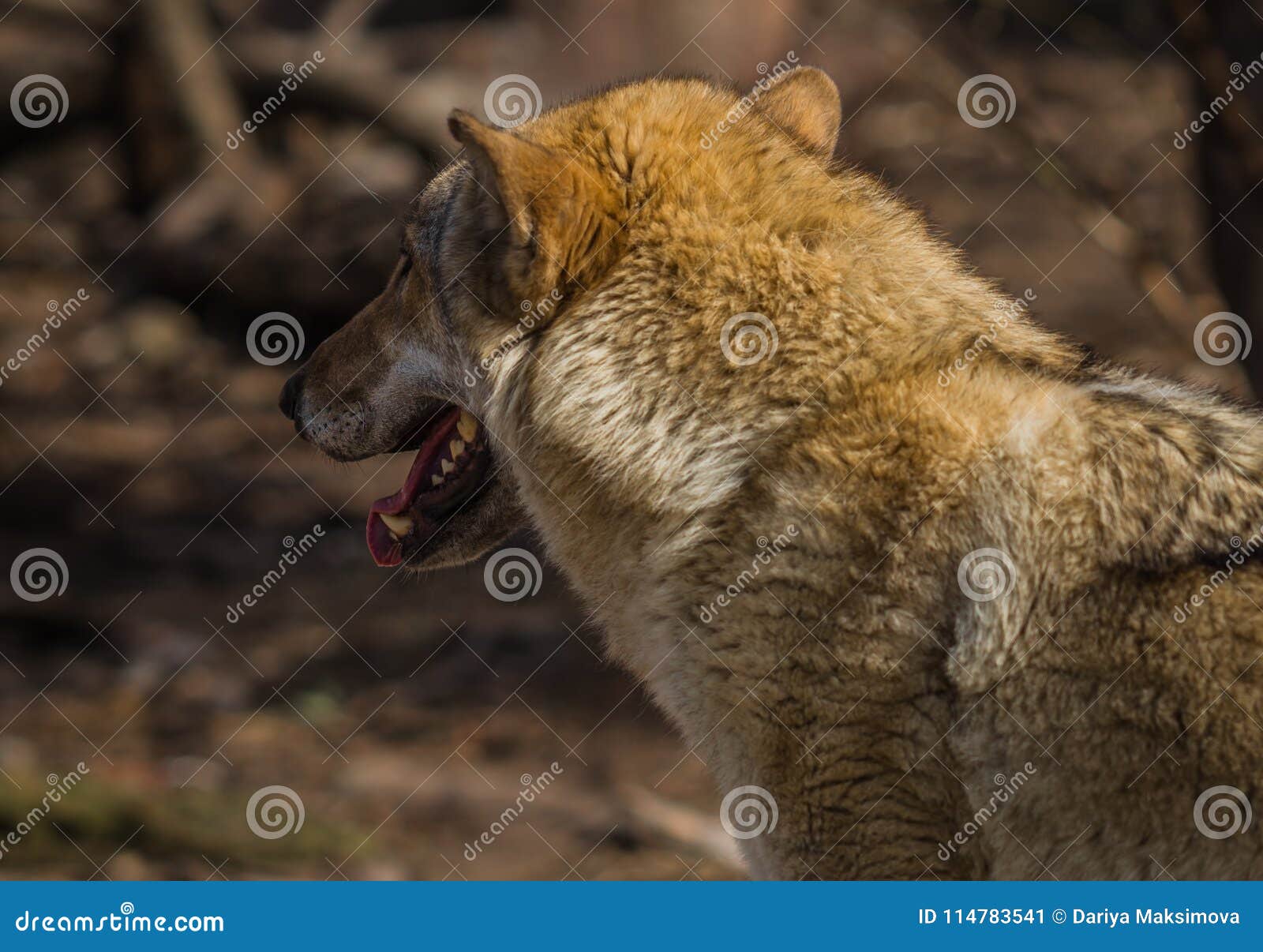Ever wondered what wolf spit actually is and why it matters? Well, buckle up because we're about to take you on an adventure into the world of wolves and their saliva. Wolf spit might sound like a random topic, but trust me, it's more intriguing than you think. From its composition to its role in the ecosystem, there's a lot to uncover. So, let's dive right in!
When most people think about wolves, they picture sharp teeth, piercing eyes, and that iconic howl. But what about the less glamorous aspects of wolf biology? Turns out, wolf spit plays a crucial role in their daily lives. It's not just about keeping their mouths moist; it's about survival, communication, and even social bonding.
As we explore this topic, you'll discover how wolf spit is more than just a biological function. It's a fascinating example of how nature has equipped these majestic creatures with tools for thriving in the wild. So, whether you're a wildlife enthusiast or just curious about the wonders of the animal kingdom, this article has got you covered.
- Viral Bread Dip The Hottest Trend In Snack Culture You Need To Try
- Pixi Eye Patches Before And After Transform Your Undereyes In Just Days
What Exactly is Wolf Spit?
Wolf spit, or saliva, is a clear liquid produced by the salivary glands in a wolf's mouth. It might not be the most glamorous subject, but it's essential for their survival. Saliva serves multiple purposes, from aiding digestion to keeping their mouths clean. But what makes wolf spit so special?
First off, wolf saliva contains enzymes that break down food particles, making it easier for them to digest their prey. This is crucial because wolves often eat large meals and need efficient digestion to fuel their active lifestyles. Additionally, saliva helps prevent infections by cleaning wounds and keeping bacteria at bay.
Why Study Wolf Spit?
Studying wolf spit isn't just for the sake of curiosity. Scientists believe that understanding the composition and functions of wolf saliva could lead to breakthroughs in veterinary medicine and even human health. For instance, the antimicrobial properties of wolf spit could inspire new treatments for infections.
- Dog In The Bag The Ultimate Guide To Understanding And Exploring This Unique Phenomenon
- David Bromstad Relationship The Inside Scoop On His Love Life And More
Moreover, by analyzing wolf spit, researchers can gain insights into their dietary habits and overall health. This information is invaluable for conservation efforts, as it helps wildlife experts monitor wolf populations and ensure their habitats remain suitable.
Breaking Down the Components of Wolf Spit
So, what's in wolf spit that makes it so remarkable? Let's break it down:
- Amylase: An enzyme that starts the digestion of carbohydrates in the mouth.
- Lipase: Helps break down fats, which is crucial for wolves since they often consume fatty tissues from their prey.
- Lactoferrin: A protein with antimicrobial properties that protects against infections.
- Lysozyme: Another enzyme that fights bacteria by breaking down their cell walls.
These components work together to ensure that wolves can efficiently process their food and stay healthy in the wild. It's like nature's version of a multivitamin, tailored specifically for these incredible predators.
The Role of Wolf Spit in Social Behavior
Wolves are highly social animals, and their saliva plays a role in their interactions. For example, grooming is a common behavior among wolves, and it involves licking each other's fur and faces. This not only helps keep them clean but also strengthens social bonds within the pack.
Additionally, wolves use saliva to mark their territory. By licking objects or each other, they leave behind scent markers that communicate important information to other wolves. This is just one of the many ways that wolf spit contributes to their complex social lives.
Wolf Spit and Communication
Communication is key for any successful pack, and wolf spit plays a part in this process. Through grooming and scent marking, wolves can convey messages about their identity, health, and intentions. It's like a secret language that only they understand.
Interestingly, researchers have found that the scent of wolf saliva can vary depending on factors like diet and age. This means that each wolf has its own unique "scent signature," which helps pack members recognize one another.
Wolf Spit and Disease Prevention
One of the most fascinating aspects of wolf spit is its role in preventing diseases. The enzymes and proteins found in saliva act as natural antibiotics, protecting wolves from harmful bacteria and infections. This is especially important since wolves often sustain injuries during hunts or territorial disputes.
Studies have shown that wolf saliva can inhibit the growth of certain bacteria, such as E. coli and Staphylococcus. This natural defense mechanism is one of the reasons why wolves are able to thrive in the wild despite the challenges they face.
Could Wolf Spit Inspire New Treatments?
Scientists are increasingly interested in the potential applications of wolf spit in medicine. By studying its antimicrobial properties, researchers hope to develop new treatments for bacterial infections that are resistant to traditional antibiotics.
For example, the protein lactoferrin found in wolf saliva has been shown to have anti-inflammatory effects. This could lead to new therapies for conditions like arthritis or chronic wounds. The possibilities are endless, and who knows? The next big medical breakthrough might just come from understanding wolf spit better.
Comparing Wolf Spit to Other Animals
While wolf spit is certainly impressive, how does it stack up against other animals? Let's take a look:
- Human Saliva: Similar in composition but lacks some of the powerful antimicrobial properties found in wolf saliva.
- Dog Saliva: Also contains enzymes like amylase and lipase, but not in the same concentrations as wolves.
- Cat Saliva: Known for its cleaning abilities, but lacks the social functions seen in wolf spit.
Each species has evolved its own unique saliva to suit its needs, and wolves are no exception. Their saliva is perfectly adapted for their lifestyle as apex predators, making it one of the most fascinating examples in the animal kingdom.
Conservation Implications of Wolf Spit
Understanding wolf spit isn't just about science; it also has important implications for conservation. By studying the health and dietary habits of wolves through their saliva, researchers can better monitor population trends and identify potential threats.
For example, changes in the composition of wolf spit could indicate shifts in their diet or exposure to environmental pollutants. This information can help conservationists make informed decisions about habitat management and protection efforts.
How You Can Help
If you're passionate about wolves and their role in the ecosystem, there are plenty of ways to get involved. Supporting conservation organizations, participating in citizen science projects, and spreading awareness about the importance of wolves are all great ways to make a difference.
And who knows? By learning more about wolf spit, you might just inspire the next generation of wildlife enthusiasts to appreciate these incredible creatures even more.
Fun Facts About Wolf Spit
Here are some interesting tidbits about wolf spit that you might not have known:
- Wolves can produce up to 1 liter of saliva per day!
- Saliva makes up around 99% water, with the remaining 1% consisting of enzymes and proteins.
- Wolves use saliva to cool down on hot days by licking their paws and belly.
These fun facts just go to show how versatile and important wolf spit really is. It's not just a biological function; it's a key part of what makes wolves such remarkable animals.
Conclusion: Why Wolf Spit Matters
In conclusion, wolf spit is much more than just a biological curiosity. It plays a crucial role in the survival, communication, and social behavior of these majestic creatures. From aiding digestion to preventing infections, wolf spit is a marvel of nature that deserves our attention and respect.
So, the next time you think about wolves, remember that there's more to them than just their sharp teeth and powerful howls. Their saliva is a testament to the incredible ways that nature has equipped them for life in the wild. And who knows? Maybe one day, wolf spit will inspire new breakthroughs in science and medicine.
Now it's your turn! Leave a comment below and let us know what you think about wolf spit. Share this article with your friends and family to spread the word about these fascinating creatures. Together, we can make a difference in protecting wolves and their habitats for future generations.
Table of Contents
- Exploring Websites Like Miss Circle Your Ultimate Guide To Online Connections
- Western Funeral Outfit Your Ultimate Guide To Dressing Appropriately


